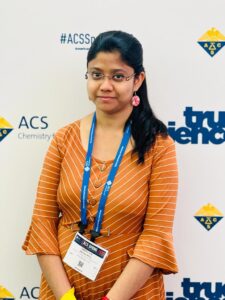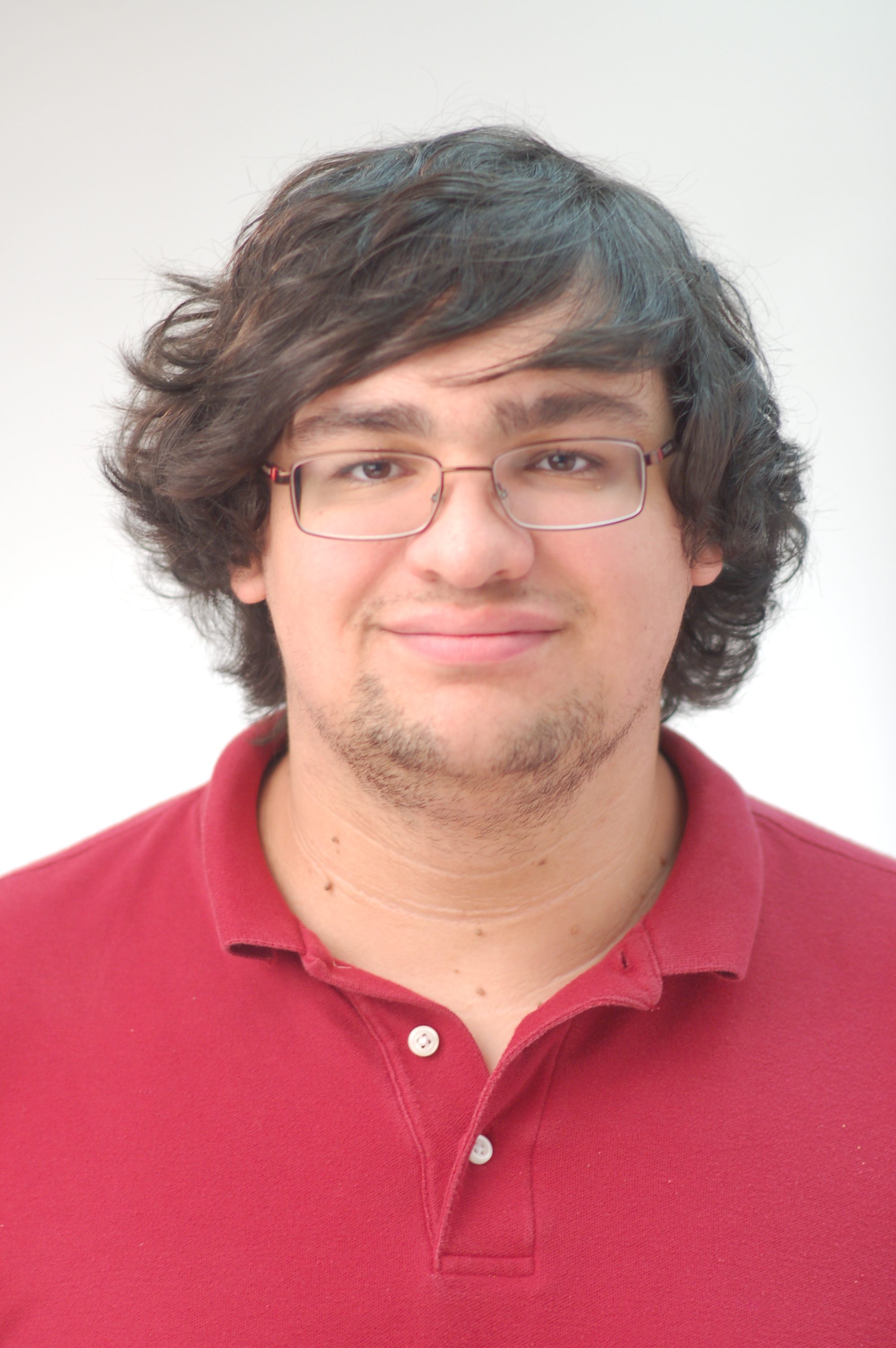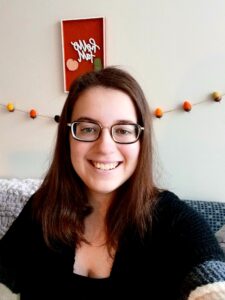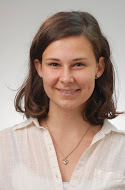Former Postdoctoral Researchers
Dr. Swapnil B. Ambade
 Dr. Swapnil’s research in Rosenzweig’s group (2020-2023) focused on platforms to chemically synthesize 2D materials, mainly MXenes, to investigate their potential as surface coatings and the effect of the exposure of various organisms on their monolayers.
Dr. Swapnil’s research in Rosenzweig’s group (2020-2023) focused on platforms to chemically synthesize 2D materials, mainly MXenes, to investigate their potential as surface coatings and the effect of the exposure of various organisms on their monolayers.
Swapnil was born in India in the year 1981 in a family of Chemical Engineers. He grew up in an environment surrounded by Chemical Engineering and further went on to obtain a Bachelor’s degree in Chemical Engineering and M.Tech in Energy from the University of Pune in 2006 and 2009, respectively. In 2009, he joined Prof. Soo-Hyoung Lee‘s research group at Chonbuk National University, South Korea, where he received his Ph.D. in Semiconductor and Chemical Engineering degree in 2014. His thesis work focused on interfacial engineering of inorganic/organic solar cells. He continued working as a BK21 Plus Postdoctoral Research Fellow in the same group (until Feb 2017), to study on the development of organically-functionalized transparent electron transporting layers (ETLs) for inverted organic solar cells. In Spring 2017, Swapnil joined Prof. Tae-Hee Han’s research group at Hanyang University, Seoul as a Research Professor, where he worked on the synthesis, exfoliation and electrochemical investigations of MXenes, MXene-transition metal oxide, and MXene-transition metal dichalcogenide hybrids.
Currently, he is a Postdoctoral Researcher in the Fairbrother group at the Johns Hopkins University. Outside laboratory, Swapnil is interested in science policy and served as a working member of the Asian Research Network Korea. Swapnil is a passionate cricketer and enjoys professional basketball.
Dr. Jessica Heimann
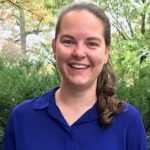 Dr. Jessica Heimann was a SCIART Postdoctoral Fellow in the Rosenzweig lab from 2019-2023. Her research aimed to explore the use of computational methodologies as nondestructive probes in art conservation science. Specifically, she used periodic density functional theory (DFT) to better understand the surface reactivity of mineral surfaces relevant to cultural heritage, including kaolinite, metakaolin, aragonite, and vermilion among others. Her work in the Rosenzweig group was funded by the SCIART grant from the Andrew W. Mellon Foundation.
Dr. Jessica Heimann was a SCIART Postdoctoral Fellow in the Rosenzweig lab from 2019-2023. Her research aimed to explore the use of computational methodologies as nondestructive probes in art conservation science. Specifically, she used periodic density functional theory (DFT) to better understand the surface reactivity of mineral surfaces relevant to cultural heritage, including kaolinite, metakaolin, aragonite, and vermilion among others. Her work in the Rosenzweig group was funded by the SCIART grant from the Andrew W. Mellon Foundation.
Prior to her time at UMBC, Dr. Heimann received her B.S. in Chemistry from Rice University in 2015 and her M.S. and Ph.D. from Yale University in 2017 and 2019, respectively. Her thesis work, under Dr. Nilay Hazari, focused on understanding the mechanism of carbon dioxide insertion into metal-element sigma-bonds, an elementary reaction proposed in many hydrogenative and dehydrogenative catalytic cycles. Currently, she is an Assistant Professor of Chemistry at the Salisbury University.
Dr. Taeyjuana Curry

Dr. Taeyjuana Curry received her B.S. in Physics from the Florida State University in 2006, and her M.S. and Ph.D. degrees in Physics from the University of Michigan in 2007 and 2012 respectively. Dr. Curry’s thesis research involved the utilization of polymeric and metal nanoparticles for targeted imaging, diagnosis, and therapy of deleterious diseases with an emphasis in cancer research.
Dr. Curry worked as a postdoctoral research fellow in Dr. Zeev Rosenzweig’s lab in the Department of Chemistry and Biochemistry from January 2014 to September 2016. Dr. Curry’s research sought to understand and mediate the toxicity associated cadmium based, luminescent nanoparticles (“Q-dots”) using both in vitro, in vivo models coupled with various imaging modalities including fluorescent, fluorescent lifetime, and transmission electron microscopy.
Dr. Curry is currently a Business Analytics Manager at Cisco in the Washington D.C Metro Area. She has also served as an Adjunct Professor at Northern Virginia Community College instructing for General Physics and Introduction to Physics courses.
Dr. Nguyen T. K. Thanh

Professor Nguyen T. K. Thanh (http://www.ntk-thanh.co.uk, https://en.wikipedia.org/wiki/Nguyen_TK_Thanh) joined the Rosenzweig Group at the University of New Orleans as an NSF Postdoctoral Research Fellow in 2001. With the group, she published several papers; one of them is a highly cited paper and received 600 citations: Thanh, N. T. K. and Rosenzweig, Z. (2002) Development of an aggregation-based immunoassay for anti-protein A using gold nanoparticles. Analytical Chemistry, 74: 1624-1628.
In 2005, she was awarded a prestigious Royal Society University Research Fellowship at the University of Liverpool. In 2013, Dr. Thanh was appointed full Professor at a world’s leading institution, University College London. Here, she leads a team doing interdisciplinary research on the design and synthesis of nanomaterials for biomedical applications, such as the studies of plasmonic and magnetic nanoparticles for diagnosis and treatment of diseases. She was awarded the 2019 Royal Society Rosalind Franklin Award and Lecture for her achievements in the field of nanomaterials and her project to help achieving gender equality. She has proposed a project to organize and deliver a residential summer science camp that is tailored to inspire and motivate Year 8 students, mainly girls from underprivileged or ethnic minority backgrounds from deprived parts of London, who are currently underrepresented in STEM careers.
Dr. Thanh is also the editor in chief of The Royal Society of Chemistry book Series, Nanoscience and Nanotechnology.
Former Research Associates
Meghan Dands
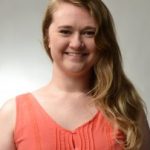
Meghan Dands graduated from Virginia Tech with a B.S. in Chemical Engineering. At Virginia Tech, she was an undergraduate researcher in an organic chemistry lab and focused on a scheme of organic reactions to produce coated nanoparticles for therapeutic drug delivery.
She first worked in the Rosenzweig Lab during the summer of 2014 as an undergraduate where she synthesized gold nanoparticles with properties ideal for RNA imaging that would ultimately be bound to RNA using the streptavidin-biotin conjugation system. The next summer, she continued to work in the Rosenzweig Lab on the synthesis and characterization of gold nanorods of various aspect ratios. Between the summers of 2017 and 2018, Meghan worked in the Rosenzweig lab on the aqueous synthesis and characterization of cadmium telluride quantum dots via microwave irradiation.
Meghan currently works as a Research Associate with Convergent Technologies Inc. in the Baltimore, MD area.
Former Graduate Students
Dr. Shreyasi Sengupta ’24
Shreyasi joined UMBC as a Chemistry Ph.D. Graduate student in Fall 2018, and officially joined the Rosenzweig lab in January 2019 after completing her lab rotations. Her research interest supported by the NSF-Center for Sustainable Nanotechnology (CSN) focused on synthesis of 2D nanosheets and their surface modifications for biological applications relevant to the environment. She was also a trainee at the NIH-funded Chemistry-Biology Interface (CBI) training program at UMBC. She defended her doctoral thesis in June 2024, and graduated in August 2024. Since October 2024, she has been working as a Materials Scientist/ Project Manager at Anderson Materials Evaluation, Inc., in Columbia, MD.
Dr. Connor Riahin ’23
Connor Riahin joined the Rosenzweig Group in October 2017. His research work focused on the development of deep-red and NIR emitting semiconducting polymer nanoparticles. These “polymer dots” are easy to synthesize, have highly tunable emission properties and surface chemistries, and are more environmentally friendly than traditional quantum dots. Potential applications include cellular labeling, super-resolution microscopy, two-photon microscopy, and oxygen sensing. He defended his doctoral thesis in September 2023. Prior to graduation, he interned at National Aeronautics and Space Administration (NASA) in Greenbelt, MD (Goddard Space Flight Center), and continued with the internship there post graduation for some time, followed by a Research Assistantship. Currently, he is a Postdoctoral Fellow at Clemson University.
Dr. Laura Kesner ’22
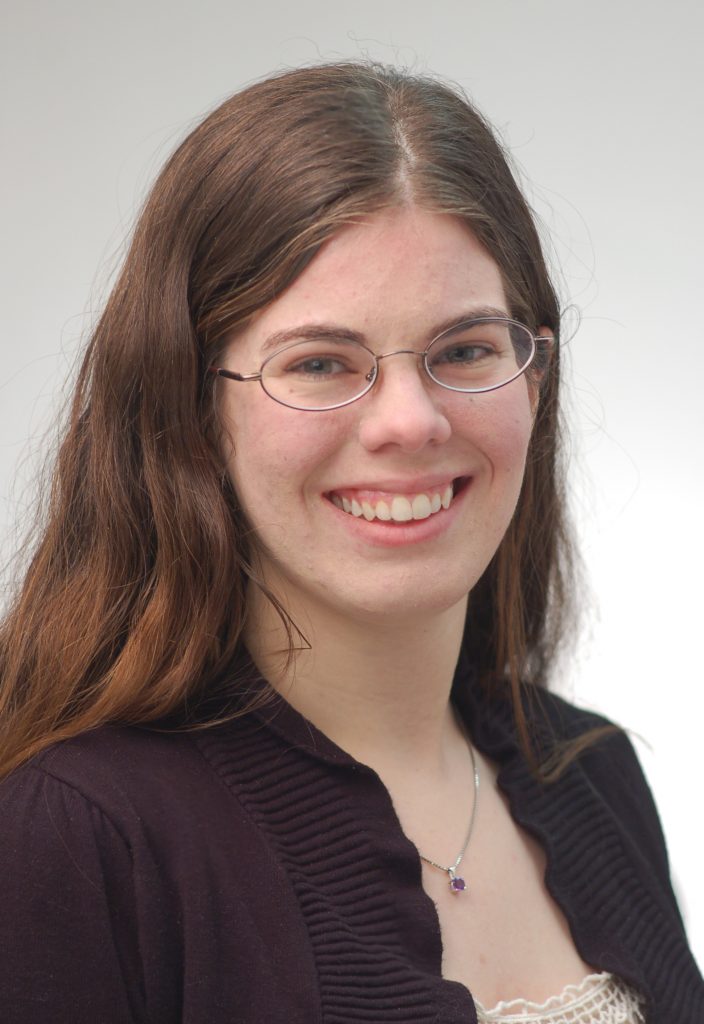 Laura Kesner (nee Satterfield) joined the Rosenzweig lab as a Ph.D. student in the summer of 2017. Her research was on fluorescence spectroscopy and microscopy of laurdan-labeled liposome (phospholipid vesicle) model cell membranes to monitor their phase change in response to nanoparticle exposure. She defended her doctoral thesis in June 2022.
Laura Kesner (nee Satterfield) joined the Rosenzweig lab as a Ph.D. student in the summer of 2017. Her research was on fluorescence spectroscopy and microscopy of laurdan-labeled liposome (phospholipid vesicle) model cell membranes to monitor their phase change in response to nanoparticle exposure. She defended her doctoral thesis in June 2022.
Dr. Zheng Zheng ’20
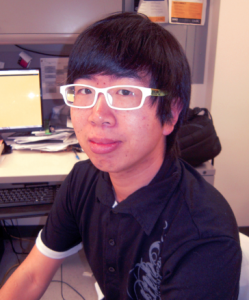 Zheng received his undergraduate degree in Biochemistry from the University of Colorado at Boulder in 2011. His undergraduate research included drug synthesis and microfluidic devices. Following graduation, Zheng worked at Thermo Fisher Scientific where he maintained and cloned cDNA and siRNA libraries. Zheng then returned to academia to pursue his Ph.D. in Chemistry at UMBC in Fall of 2013 and worked in the Rosenzweig Lab until defending his doctoral thesis in October 2020. Zheng is interested in the synthesis and analysis of nanoplasmonic alloy materials for energy harvesting and catalytic applications. He is currently a Scientist I (Bioanalytical Principal Investigator) at Meso Scale Diagnostics, LLC.
Zheng received his undergraduate degree in Biochemistry from the University of Colorado at Boulder in 2011. His undergraduate research included drug synthesis and microfluidic devices. Following graduation, Zheng worked at Thermo Fisher Scientific where he maintained and cloned cDNA and siRNA libraries. Zheng then returned to academia to pursue his Ph.D. in Chemistry at UMBC in Fall of 2013 and worked in the Rosenzweig Lab until defending his doctoral thesis in October 2020. Zheng is interested in the synthesis and analysis of nanoplasmonic alloy materials for energy harvesting and catalytic applications. He is currently a Scientist I (Bioanalytical Principal Investigator) at Meso Scale Diagnostics, LLC.
Dr. Richard Brown ’20
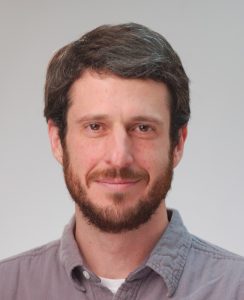 Richard defended his doctoral thesis on biologically relevant semiconductor nanomaterials in July 2020. Prior to his time in the Rosenzweig Lab, he completed his Bachelors degree in Biochemistry at UMBC, where he focused on research involving organic synthesis of a novel proton transferring polymer in the lab of Dr. Paul Smith.
Richard defended his doctoral thesis on biologically relevant semiconductor nanomaterials in July 2020. Prior to his time in the Rosenzweig Lab, he completed his Bachelors degree in Biochemistry at UMBC, where he focused on research involving organic synthesis of a novel proton transferring polymer in the lab of Dr. Paul Smith.
In addition to scientific research, Richard enjoys mentoring young adults both in and outside of an academic setting. Recently, this involved the Youth-Works program that places Baltimore high school students for summer internships. He also spends time with young at-risk adults in his local community of Bel Air, MD. After graduation, he was a Postdoctoral Researcher at the Penn State University. Currently, he is an Analytical Chemist at the US Consumer Product Safety Commission (CPSC).
Dr. Denise Williams-Harris ’20

Denise graduated cum laude from the University of New Haven, where she received her Bachelors in both Forensic Science and Chemistry. She joined the Rosenzweig Group as a Meyerhoff Graduate Fellow in 2015 and defended her doctoral thesis in July 2020. Her research was aimed at 1) synthesizing nanomaterials that are more environmentally benign without compromising their luminescent properties or intended applications in bioimaging or drug applications and 2) investigating the implications of quantum dot surface chemistry on their interactions with bacterial targets.
In addition to her work in the Rosenzweig Lab at UMBC, Denise worked as a team member with the PROMISE AGEP program under the direction of Dr. Renetta Tull. UMBC’s PROMISE AGEP supports academic and professional development of graduate students from all backgrounds, in all fields, and in conjunction with PROMISE and AGEP programs across the University of Maryland system and the country. Denise also served a Senator for the Chemistry Graduate Student Association (CGSA) and Secretary for the Living Network for Connective Science (LNCS), a UMBC graduate student organization with a mission for STEM outreach.
Denise is a military spouse and since graduating from UMBC, she has been working as a Chemistry Subject Matter Expert, Adjunct Instructor/ Professor, and Program Coordinator at various organizations. She also did a postdoc in the Department of Human Sciences and Design at Baylor University from 2021-2022.
Kazi Zihan Hossain

Kazi joined the Environmental Engineering MS program in Chemical, Biochemical and Environmental Engineering (CBEE) Department at UMBC in Fall 2018, and officially joined the Rosenzweig lab in Fall 2019. His research focused on the toxicity and environmental impact of nanomaterials. He was involved in Zebrafish embryo apoptosis and necrosis quantification projects.
Kazi completed his B.Sc. in Chemical Engineering majoring in Environmental Engineering from Bangladesh University of Engineering and Technology (BUET). His undergrad thesis was on the synthesis and characterization of biochar from biowaste. While at BUET, he led his team winning in national and international Chem-E-Car Championship. He was also involved in different leadership programs and movements. After earning his degree, he worked for four months in a startup as a technical intern. There he created and executed testing plans for different waste treatment chemical products. He graduated from UMBC in Spring 2020 and joined the University of Nevada, Reno (UNR) in Fall 2020 to pursue his Ph.D. degree in Chemical Engineering.
Jennifer Klutts ’19

Jenny Klutts was a graduate student pursuing her M.S. in Toxicology at UMB. Prior to that, she graduated magna cum laude from Trine University with a B.S. in Chemistry and Forensic Science. She joined the Rosenzweig lab in the Spring of 2018 for her Masters thesis. Her research focused on the biological impact of poly oxo-norbornene (PONs) as free ligands and attached to gold nanoparticles on organism development in a zebrafish embryo model. Following the completion of her Masters, Jenny continued as a Research Associate in the Rosenzweig Lab for some time. Currently, she is a Senior Process Development Associate at Miltenyi Biotec.
Melissa (Muth) Richardson ’16
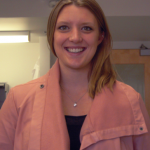
Melissa Muth obtained her Masters in Toxicology from the University of Maryland, Baltimore in 2016. While in the program, she worked in the Rosenzweig Lab investigating the biological impacts of semi-conductor nanomaterials (quantum dots) on organism developing, specifically in a zebrafish embryo model. The goal of her studies was to understand and minimize the long-term biological impact of nanomaterials on organism development prior to their mass production and introduction to the market. In addition to her research on nanotoxicity, Ms. Muth was an intern in the Office of Public Affairs at the University of Maryland where she gained experience in effective science communication.
Before attending the University of Maryland, Melissa obtained her B.Sc. in Biochemistry from Daemen College in Amherst, New York, USA. Currently, she is the Program Manager for Photo-Electro: Transforming Chemical Synthesis, Discover, and Manufacture at the University of Nottingham in the United Kingdom.
Kaila Noland
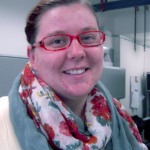
Kaila Noland received her undergraduate degree from Berea College where she majored in Biology with a concentration in Cellular, Molecular and Systems Biology. As an undergraduate, her research involved characterizing the sensory systems of cercaria of the Trematode, Proterometra macrostoma. In 2015, Kaila began pursuing a Ph.D. in Toxicology at the University of Maryland, Baltimore and conducting research in the lab of Dr. Zeev Rosenzweig. Her research involved examining the role of shape and surface chemistry on nanoparticle toxicity and developmental effects in zebrafish. Currently, Kaila is conducting research at the University of Maryland, Baltimore.
Dr. Arriel Wicks ’10

Dr. Arriel Wicks earned their doctoral degree in 2010 from the University of New Orleans under the guidance of Dr. Rosenzweig. Their dissertation (titled: Luminescent Quantum Dot and Protein Composite Nanoparticles for Bioanalytical Applications) involved the design of stable, dual emission quantum dot encoded mesoporous silica microparticles for the simultaneous detection of three different cancer biomarkers. Upon graduation, Dr. Wicks joined the Drug Enforcement Administration as a Forensic Chemist. After 6 years, they began their industry career as a Quality Control Scientist at Dr. Reddy’s Laboratories (2016) and Senior Scientist at BioStat Laboratories (2017). Concurrently, Dr. Wicks taught as a Professor of Chemistry at Northwestern State University. As of 2018, Dr. Wicks has worked for Analytik Jena AG. Their career work and expertise is in analytical instrumentation, method development, validation, and routine analysis.
Dr. Yongfen Chen ’03

Dr. Yongfen Chen earned his doctoral degree in 2003 after completing his dissertation entitled “Luminescent Semiconductor Quantum Dots (QDs) and Nanoassemblies as Bioprobes” at the University New Orleans under the direction of Dr. Rosenzweig. His research in the lab primarily focused on the assembly of CdS and CdSe core and core/shell materials and their use as biosensors. After graduation from the Rosenzweig lab, Yongfen did postdoctoral research at the University of Arkansas and Los Alamos National Laboratory from 2004 to 2008. Research topics included metal oxide nanocrystal growth mechanism study and single semiconductor nanocrystal fluorescence blinking suppression.
Since 2008, Dr. Yongfen has worked as a Staff Scientist at Life Technologies (now Thermo Fisher Scientific Inc.) in Eugene, Oregon. Here, his research remains in the field of nanomaterials for protein and cell analysis applications, such as multiplex fluorescent western blotting and flow cytometry, etc.
Dr. Jin Ji ’01

Jin is the first student that earned a doctoral degree under Dr. Rosenzweig’s guidance (Dissertation: Sub-micrometer optical biosensors for intracellular physiological conditions monitoring). She was the lead student in the closely-knit, energetic and creative Rosenzweig’s group in the pre-Katrina University of New Orleans. Jin offered fellow students supportive scientific discussions, as well as organized post-semester parties and Bourbon street trips. Post graduation, Jin moved to Boston, US for further research and development in biosensors at Smith Group PLC (London Stock Exchange: SMIN). She then joined Harvard Medical School as a Research Faculty focusing on medical device designs utilizing nanostructure assisted Extraordinary Optical Transmission principle. While at Harvard Medical School, Jin completed the Master of Management program at Harvard University which propelled her into the entrepreneurial world where she co-founded Lightwave Power, Inc., a venture-backed US private nanotechnology startup. Jin is now a partner and the Executive Vice President of Brunswick Laboratories, Inc., an independent bioanalytical laboratory headquartered in Boston, where she leads operation, marketing, and technology development of the laboratories that provide to nutritional and pharmaceutical industries scientific research and evaluation including advanced phytonutrient analysis, human cell-based bioanalysis, preclinical and clinical studies.
Former Undergraduate Students
Bella Guardado ’24
Bella was a Chemistry and Sociology double major at UMBC. In the Rosenzweig lab, she was interested in exploring how the structure of nanomaterials impacts their toxicity when introduced to different environments. She also worked on the surface modification of MXenes. She was a Meyerhoff scholar, an ACS scholar, an Alternative Spring break leader, and in the Honors College. She was passionate about student activism regarding disability justice and educational equity. She is currently pursuing her Ph.D. in Chemistry at the University of Virginia.
Amalthea Trobare ’22
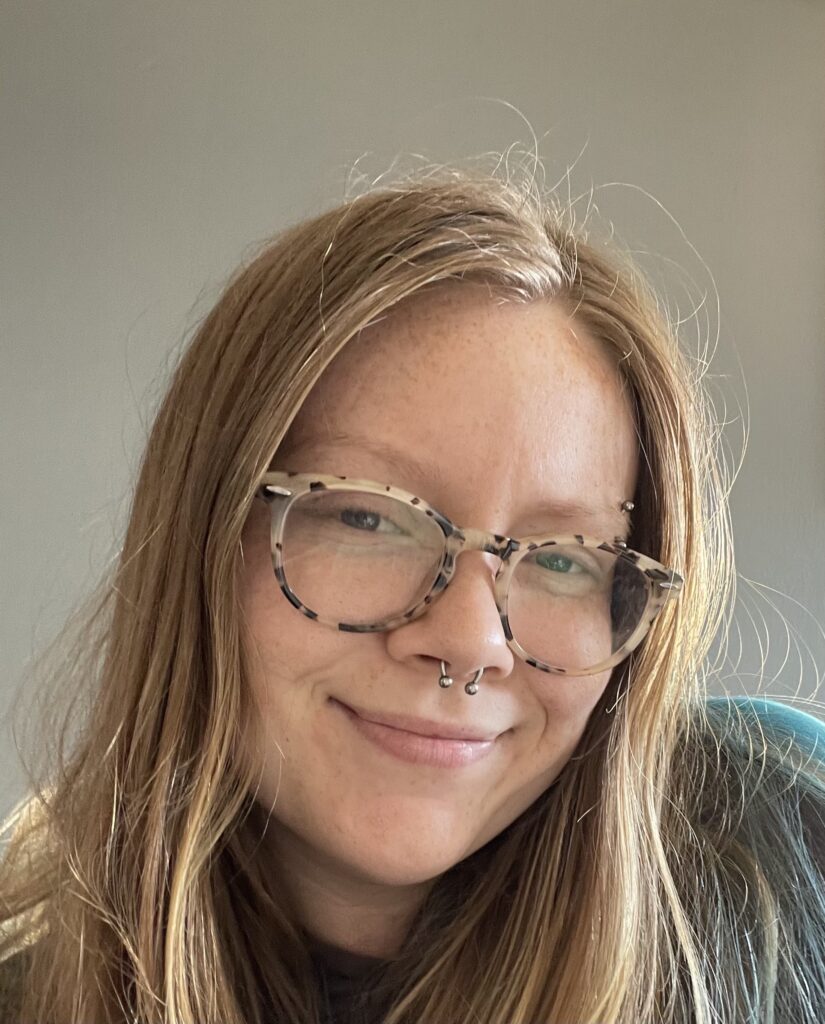 Before transferring to UMBC, Amalthea studied Chemistry at Frederick Community College (FCC), where she received an Associate Degree with high honors. During her time there, she helped publish a collaborative research poster titled “Creating and Accomplishing a Virtual Three-Credit Lab-Oriented Honors Independent Study Course,” presented at the 2021 AFACCT virtual conference. She continues to work for FCC as a tutor of Chemistry, Mathematics, and Physics. Currently, Amalthea is a Chemistry major at UMBC and has a passion for art and environmental conservation.
Before transferring to UMBC, Amalthea studied Chemistry at Frederick Community College (FCC), where she received an Associate Degree with high honors. During her time there, she helped publish a collaborative research poster titled “Creating and Accomplishing a Virtual Three-Credit Lab-Oriented Honors Independent Study Course,” presented at the 2021 AFACCT virtual conference. She continues to work for FCC as a tutor of Chemistry, Mathematics, and Physics. Currently, Amalthea is a Chemistry major at UMBC and has a passion for art and environmental conservation.
Lorin Loftus ’21
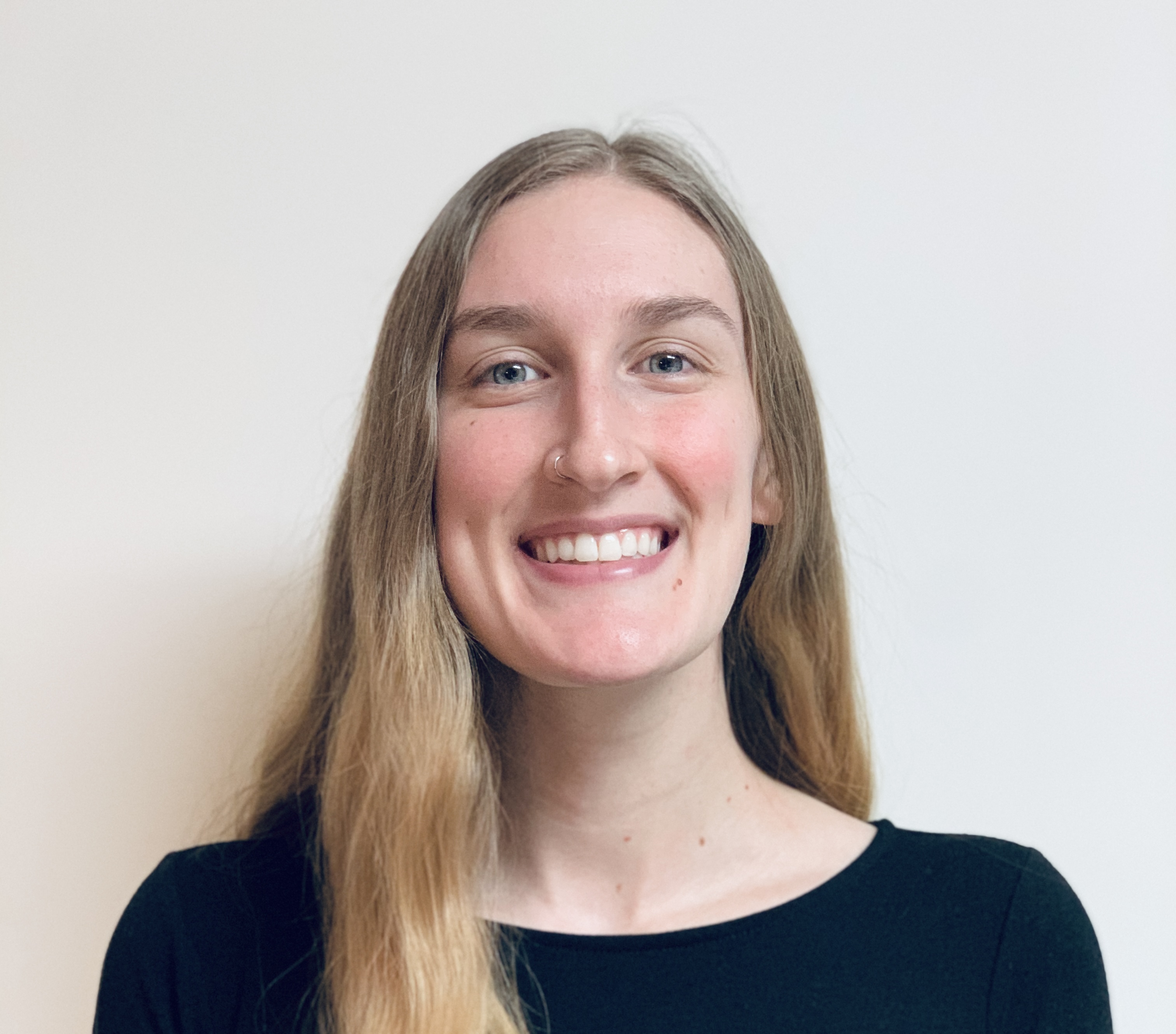 Lorin Loftus did research in the Rosenzweig Lab between Fall 2020 and Spring 2021 as an undergraduate studying Biochemistry and Molecular Biology. Her research involved improving the biocompatibility and visibility of glass medical microdevices for biological research use. She also spent time researching the functionalization of gold nanoparticles for use with glass surfaces. Lorin is now a Postbaccalaureate IRTA Fellow at the National Institute on Aging with a focus on DNA and RNA helicases and their relation to genome stability.
Lorin Loftus did research in the Rosenzweig Lab between Fall 2020 and Spring 2021 as an undergraduate studying Biochemistry and Molecular Biology. Her research involved improving the biocompatibility and visibility of glass medical microdevices for biological research use. She also spent time researching the functionalization of gold nanoparticles for use with glass surfaces. Lorin is now a Postbaccalaureate IRTA Fellow at the National Institute on Aging with a focus on DNA and RNA helicases and their relation to genome stability.
Ewa Harazinska ’20
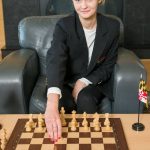
Ewa Harazinska did research as a member of the Rosenzweig Lab between Fall 2017 to Spring 2020. She conducted research on the synthesis, characterization and environmental impact of luminescent semiconductor quantum dots—such as CdTe, ZnSe and CuInS quantum dots—which are used in components of consumer electronic products. Outside of the lab, Ewa is an avid chess player. She received a full Pepsi-Cola Chess Fellowship, gave online chess tutoring, and was a member of the UMBC Chess team. Upon her graduation, Ewa joined the Chemistry Ph.D. program at the Johns Hopkins University.
Jessica Park ’19
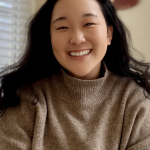 Jessica Park did research in the Rosenzweig lab between Fall 2018 and Fall 2019 as an undergraduate studying Biochemistry at UMBC. Jessica’s research interests surround Organic Chemistry and Biochemistry. Her research investigated the biological impact of antimicrobial poly oxo-norbornenes (PONs) on organism development in a zebrafish embryo model. Outside of the lab, Jessica was a violin player in the UMBC symphony.
Jessica Park did research in the Rosenzweig lab between Fall 2018 and Fall 2019 as an undergraduate studying Biochemistry at UMBC. Jessica’s research interests surround Organic Chemistry and Biochemistry. Her research investigated the biological impact of antimicrobial poly oxo-norbornenes (PONs) on organism development in a zebrafish embryo model. Outside of the lab, Jessica was a violin player in the UMBC symphony.
Zachary Clifford

Zachary Clifford worked with the Rosenzweig lab as an undergraduate sophomore and junior in the Chemistry program at UMBC; after which he began research in the Daniel Lab. Zachary is interested in Physical/Inorganic/Analytical/Theoretical/Materials Chemistry. Hence, his work in the Rosenzweig lab focused on characterizing synthetic and bio-synthesized nanoparticle synthesis and characterization. Outside of class and research, Zachary was active in gaming and anime-themed university organizations.
Em Demiral ’19

Em Demiral was an undergraduate student studying Chemistry who joined the Rosenzweig lab in Summer 2018. Along her interest in Inorganic Chemistry and Biochemistry, her research investigated the biological impact of different polymer-coated gold nanoparticles on model liposomes and zebrafish embryos. Outside of the lab, Em was active in UMBC’s gaming club and enjoyed cooking, baking, and playing strategy board games. Upon her graduation, Em has been employed as a teacher in the Baltimore County Public School System.
April Laranang ’19
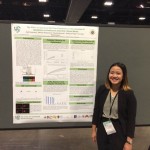
April Laranang was an undergraduate student studying Chemical Engineering. Her work in the Rosenzweig lab involved investigating the biological impact of quantum dots and antimicrobial polymers on embryonic zebrafish in order to determine safer alternatives to cadmium-based quantum dots. She presented her research finding at several conferences including her 1st Place Chemical Science Poster at UMBC’s Undergraduate Research Symposium. Outside of the lab, April spent most of her time on schoolwork, but she also enjoyed baking and reading books. She was also a part of a mentoring group on campus called Achievement and Inspiration through Mentorship [AIM]. Each week, they visit a Baltimore city middle school and work alongside the students. In the future, she would like to obtain a Ph.D. in Environmental Engineering and travel across the world in order to help developing countries.
Chana Honick ’16
Chana majored in Chemistry while at UMBC. Her work in the Rosenzweig lab involved investigating the uses for quantum dots by exploiting their semiconductor properties. Specifically, Chana investigated the benefits and drawbacks of using different types of quantum dots in solar cells. To supplement this work, she developed a portable device that can be used to characterize the solar cells under light controlled conditions. In addition to her research, Chana helped design and maintain the Rosenzweig Group website. She is now a graduate student at the Johns Hopkins University.
Danielle Tyson ’16
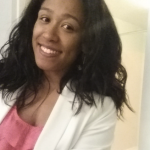
Danielle Tyson majored in Biochemistry and Molecular Biology while at UMBC. Ms. Tyson became an undergraduate researcher in the Rosenzweig lab in April 2014. The research she conducted involved developing and optimizing a nanoparticle drug delivery system to promote angiogenesis in diabetic patients at risk of losing limbs.
Karina Keefe ’19
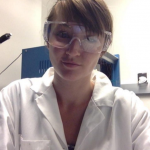
Karina Keefe was an undergraduate student studying Chemical Engineering on the Environmental Engineering & Sustainability track, and in the Honors College. She worked in the Rosenzweig Group in 2016-2017. Her research in the lab was focused on quantifying the amount of a drug for the treatment of ischemia encapsulated by PLGA nanoparticles using high performance liquid chromatography. Outside of the lab, Karina was involved with promoting sustainability on and off campus, the President of Students for Environmental Awareness, and the Co-Director of SGA Environmental Affairs. She is also a musician and poet, and her writing has been featured in various literary journals and anthologies, including UMBC’s Bartleby.
Upon graduation, Karina became an engineer at Whitman, Requardt and Associates, LLP in Baltimore, MD.
Daniel Morgan ’19

Daniel Morgan worked in the Rosenzweig lab as a sophomore undergraduate student (2017), majoring in Chemistry at UMBC. He researched the organic synthesis of ligands that will be used for solubilizing nanomaterials. After a few months in the Rosenzweig lab, he finished his undergraduate research in the organic synthesis lab of Dr. Marcin Ptaszek. In addition to his Chemistry studies, Daniel minored in Ancient Studies at UMBC as History is also a passion of his. Outside of his studies, Daniel worked as a UMBC Student Disability Services note-taker, was an Eagle Scout, and enjoyed working on his own hobbies such as Computer-aided design and 3D printing.
Former Summer Trainees
Halley Le REU ’24
Elea-Maria Abisamra REU ’23
Alayah Collins REU ’21

Katelyn Rediger REU ’18
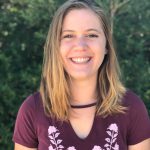
Stephan Harruff REV ’18
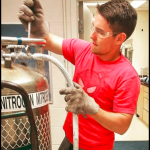
Stephan is from Terre Haute, Indiana and attended Indiana State University as a Chemistry major. In Summer 2017, he obtained research experience performing sialylation chemistry utilizing copper catalysts to bind function groups across a carbon-carbon pi-bond. With this project, he had the opportunity to present posters at many conferences; the two most notable were at the American Chemical Society National Meeting in New Orleans, Louisiana and the National Conference of Undergraduate Research in Edmond, Oklahoma. Stephan is in the United States Marine Corps Reserve where his job consists of installing, diagnosing, modifying, and performing field level repairs on Marine Corps Common Hardware Suite (MCHS) systems, intelligence processing systems, information technology systems, telephone switching systems, and related equipment. Due to his interests in Medicinal Chemistry, he has worked at a Meijer Pharmacy as Pharmacist Technician for three years. Stephan would like to go to graduate school to get a Doctorate in Chemistry.
While at UMBC, Stephan worked under graduate student Connor Riahin in Dr. Rosenzweig’s lab as a REV (Research Experience for Veterans) student. The project involved examining ligand exchanges on gold nanoparticles. His role focused on utilizing spectroscopic techniques to examine the unique behaviors of gold nanoparticles when different brigands are covalently bonded to the surface. His group news!
Leopoldo Posada Escobar REU ’17
Leopoldo Posada Escobar came to the NSF CSN REU program from the University of Texas Rio Grande Valley (UTRGV), where he pursued a B.S. in Chemistry. At UTRGV, Leopoldo has been a member of Dr. Shizue Mito’s synthetic organic laboratory working on the synthesis of benzo-fused indolequinones and investigation of their potential anti-carcinogenic properties.
During his REU, Leopoldo worked in Dr. Rosenzweig’s laboratory on the synthesis and functionalization of gold nanoparticles with different surface ligands containing varying ratios of amine to polyoxonorbornenes. The purpose of this is to investigate the effect amine content has on the surface charge density of gold nanoparticles. Leopoldo plans to pursue graduate school with the intention of obtaining a Ph.D. in Chemistry and becoming a faculty member in a research university. Click here for more information on Leopoldo.
Hyo Park REV ’16

Hyo Park conducted research in the Rosenzweig lab as part of the Research Experience for Veterans (REV) program for The Center of Sustainable Nanotechnology. During this summer, Hyo investigated the stability of core shell quantum dots in various environmental conditions. His group news!
